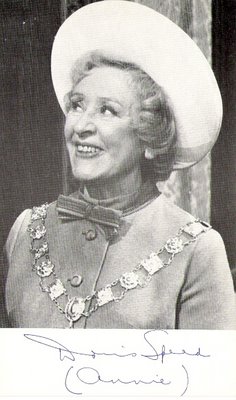 Simply one of the best pop records. Not just of 1978. Not even just of the '70s. But EVER.
Simply one of the best pop records. Not just of 1978. Not even just of the '70s. But EVER.Jilted John hit the charts just as I was on the very brink of teenagehood in August 1978 and it fitted my mood exactly. My hormones hadn't waited for the magic "13", due in October, and my body and moods were already undergoing thoroughly grotty changes. And had been since I was eleven.
So John's rantings suited me perfectly. John was really one Graham Fellows, and this record was a spoof of the Punk/New Wave songs around at the time - a tremendously clever one which had enormous appeal to us comp school kids. John was a bit of a retard, and, it seemed, also a bit of a "girly" (fancy crying all the way to the chip shop!) but somehow he struck a chord with me and a lot of "der lads" I knew back then.
As was the fashion in the Punk era, the song had a great 1950s guitar riff, and the "in" way to dance to it was with a 1950s hand jive. But you had to wear a thoroughly bored, pissed off expression whilst you did it. "Postmodern irony" some call it. Back in 1978, I had no idea what "postmodern" meant (it was just something the likes of Melvin Bragg liked to waffle about) and, despite studying theories of post modernity in the '90s, I remain unconvinced that it's not just a load of written and verbal diarrhoea, fresh from the bowels of academia.
Whenever I hear Jilted John, I'm instantly reminded of the grotty, greasy, zit-ridden little geezer I was back in 1978. Miserable little sod I was. And I had a hair cut just like Terry Wogan's.
I'm also reminded of the mates I had, some of whom are still mates of mine today. And standing in the local shopping centre during the evenings with said mates, "gobbing off" at passers by. And picking my zits. And being bored a lot of the time. And hating everything.
They were good days.
And by the way: Gordon is a moron.
 Coronation Street, New Year's Day 1979, and Gail Potter (Helen Worth) is waiting for Brian Tilsley at the pictures. But who is the dashing fellow beside her?
Coronation Street, New Year's Day 1979, and Gail Potter (Helen Worth) is waiting for Brian Tilsley at the pictures. But who is the dashing fellow beside her? Yep, it's Graham Fellows, AKA Jilted John, making a cameo appearance in The Street as a young lad who, like Gail, has been "stood up". He offered to go into the flicks with her, but Gail was not impressed. She never did know what was good for her that girl - remember how her life turned out with Brian, and think just how different things could have been had she settled down with Jilted John...
Yep, it's Graham Fellows, AKA Jilted John, making a cameo appearance in The Street as a young lad who, like Gail, has been "stood up". He offered to go into the flicks with her, but Gail was not impressed. She never did know what was good for her that girl - remember how her life turned out with Brian, and think just how different things could have been had she settled down with Jilted John... 






